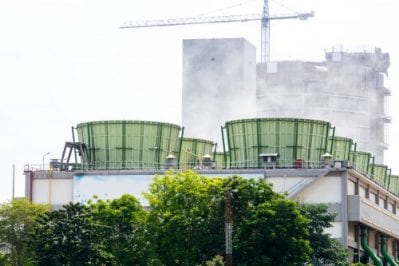Many times, plant personnel focus on the primary cooling water systems at their facilities but give lesser thought to the (often numerous) closed cooling water systems. Yet a failure of one of these systems can potentially cause at least a portion of the plant to shut down.
Also, operators often wish to operate these systems with untreated service water for makeup, when use of high-purity condensate offers much better flexibility for chemistry control. A closed system with good integrity typically requires very little makeup. And, if condensate is utilized for the system fill and subsequent makeup, issues related to scale formation are minimized.
Concerns for Closed Cooling Water Systems
Corrosion Control
The primary concern becomes corrosion control, which is usually straightforward via the use of common agents such as sodium nitrite or sodium molybdate. These chemicals induce carbon steel piping and other components to form a passive layer, provided the chemical concentrations are maintained within the proper range. (Weekly monitoring and chemical replenishment, if necessary, are common criteria.) For those systems that contain copper-alloy heat exchanger tubes, azole compounds have a proven history of corrosion protection.
Microbiological Growth
One aspect that is sometimes overlooked until problems arise is that certain treatment programs, for example those based on nitrites, may allow microbiological colony growth within the closed system. This fouling can restrict heat transfer and even pinch off small-bore piping at times. A number of nonoxidizing biocides are available for treating both open and closed cooling water systems, and it is often relatively simple to select a product based on a laboratory analyses of the offending organisms.
Anti-Freeze
Some closed systems, particularly in northern climates, may have glycol as an additive to prevent freezing in the winter. Just as with an automobile, it is important to periodically check the system’s anti-freeze concentration and pH. Over time, glycol decomposes into small-chain organic acids that may increase the corrosion potential of the liquid. A bit of bleed and refill may be necessary from time to time.
Please contact ChemTreat for assistance in designing a treatment program customized for your application. Like all other technologies, due diligence is necessary to determine the feasibility for utilizing methods. Always consult your equipment manuals and guides.

